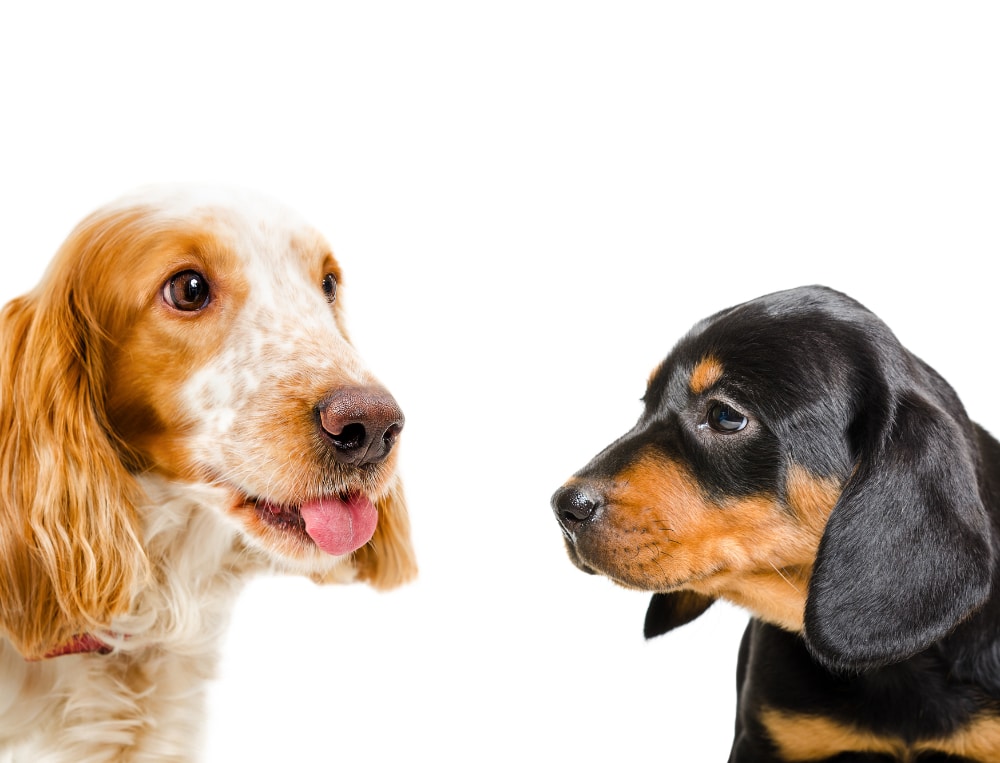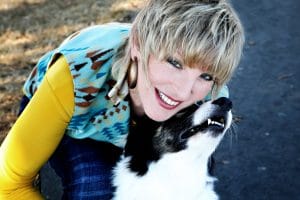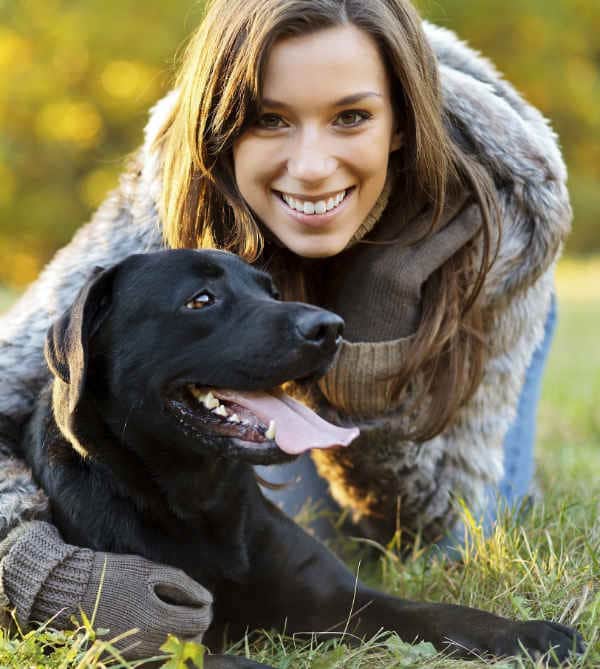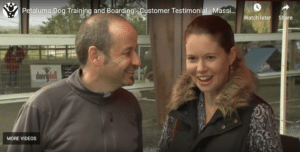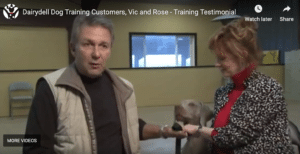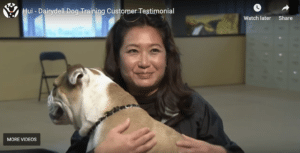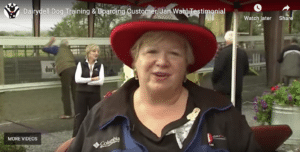It seems few terms in dog behavior parlance are more misunderstood by dog owners (and many professionals) than the word, “socialization.” Owners are admonished to “socialize” their new pups and dogs in order to ensure a calm and polite canine that will be a joy to walk in any neighborhood, that will play well with others in any dog park and will eagerly accept all humans, familiar or not. (False advertising, by the way.) To accomplish this magic, dog owners are advised to get their puppies or new dogs out and about, putting them with other dogs on a regular basis and having multiple people approach and pet them. Now this is all well and good if the puppy or new dog seems to enjoy these new experiences, but here is where things go wonky: If the dog being “socialized” in this way shows signs of stress or unhappiness during these exercises, owners think (or have been told) they should repeat the uncomfortable experiences until the dog improves. Nothing could be worse advice!
A dog that routinely shows fear or aggression around other dogs or in a dog park is telling you he does not feel safe or comfortable there.
First, let’s define what “socialization” really means. Socializing a dog means helping them learn to live safely and comfortably in the human social world around them. Nowhere in that definition does it say, “must play well with other dogs” or, “must accept strangers.” Assuring that our dogs can live safely and comfortably in our world is simply that. It is, however, sometimes tricky business because it’s never a one-size-fits-all process. We must determine what our particular dog requires in order to feel safe and comfortable. It can be different for every dog, but if we are paying attention, the dog will tell us!
If your dog is one of the many thousands that don’t play well with others, stop trying to change that.
A dog that routinely shows fear or aggression around other dogs or in a dog park is telling you he does not feel safe or comfortable there. How much clearer can he be? If he always hides behind your leg or growls when someone new bends to pet him, he’s telling you that he’s uncomfortable and asking you to keep that person away from him. Listen to your dog and set boundaries and rules that will assure his happy place is honored. Stop forcing your nervous dog to accept other dogs or new people on walks and protect his comfort bubble at home, too. When strangers come to visit, give your nervous or painfully shy dog a quiet, secure space away from the action where no one can bother him. Frequent visitors, however, can become trusted friends over time, and dogs that you see routinely can become the same. A tentative dog, however, will need time to develop trust, and on his own terms and timetable.
If your dog is one of the many thousands that don’t play well with others, stop trying to change that. Ironically, by forcing the issue because of a misguided belief that your dog needs to play with other dogs in order to be “happy,” you are making your dog increasingly unhappy. Instead, “socialize” him by earning his trust — never forcing him to deal with things that are too stressful for him. You can still walk proudly around the neighborhood together, but now he knows you won’t insist that he greet other dogs on leash and you’ll see to it that other dogs not approach him. You can pass people on the street calmly once you stop allowing or inviting them to come up to pet your dog. Once your dog trusts that you are protecting him from what he considers potential danger, he can begin to relax. Then he will then have learned to live safely and comfortably in your human social world around him. He will then be properly “socialized.”

